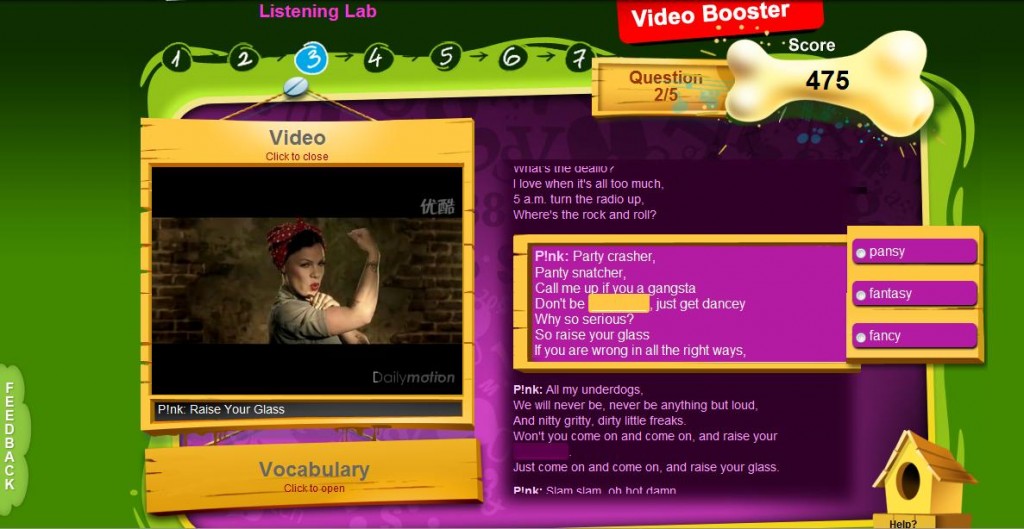English Attack
I’ve been raving about this site since I got back from Madrid! English Attack is a fun, motivating resource to get your students using English outside the classroom. Students can watch music videos and clips from films, documentaries and TV series whilst learning new vocabulary and practising their listening skills.
After being introduced to some key vocabulary, students watch the clip and then answer some questions to check their understanding of the clip. There are a series of activities to practise the key vocabulary and students can watch the clip as many times as they like and also check out the transcript of the clip.
Although aimed more at the teenage market, it’s a great resource for adults too. Well worth checking it out!

